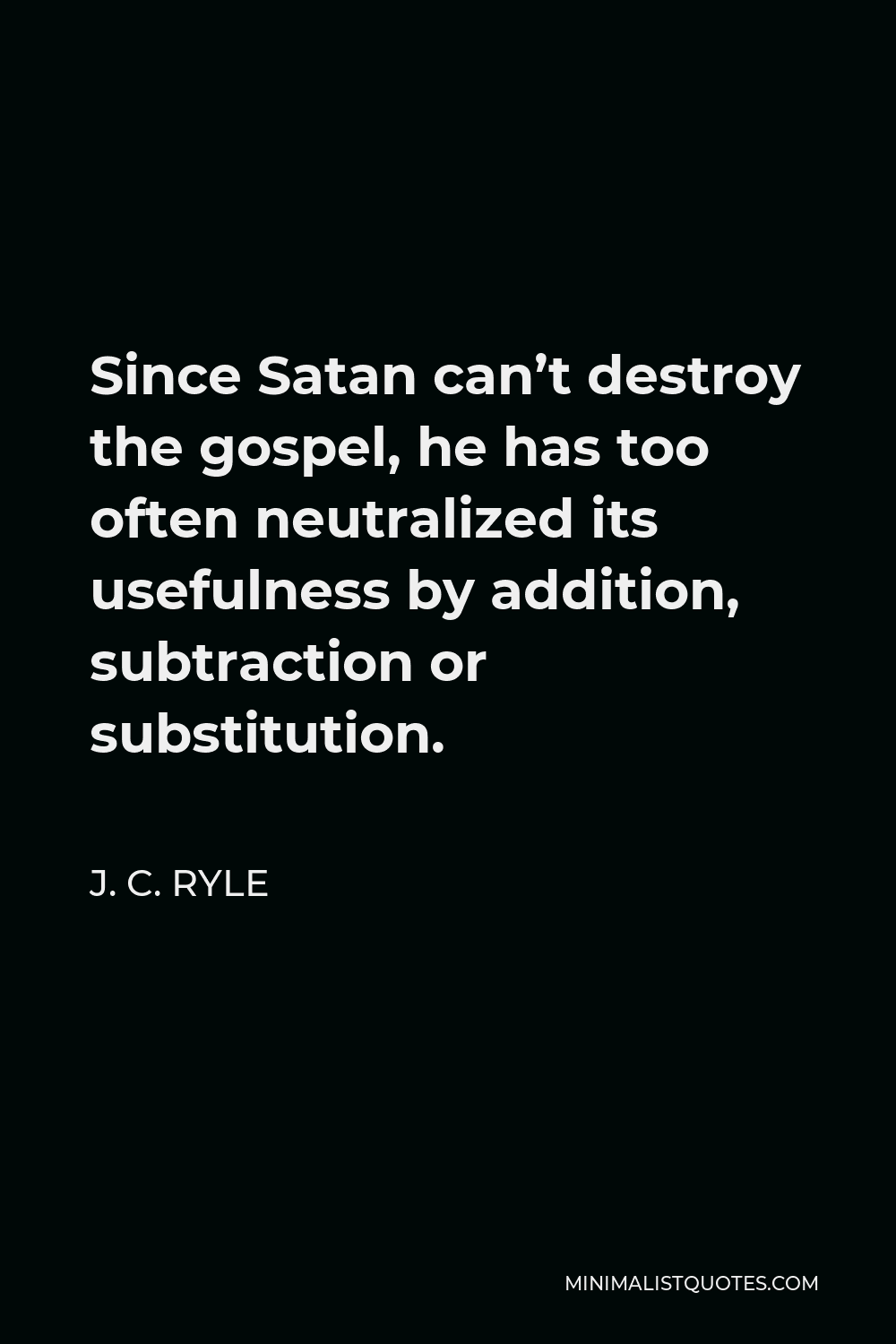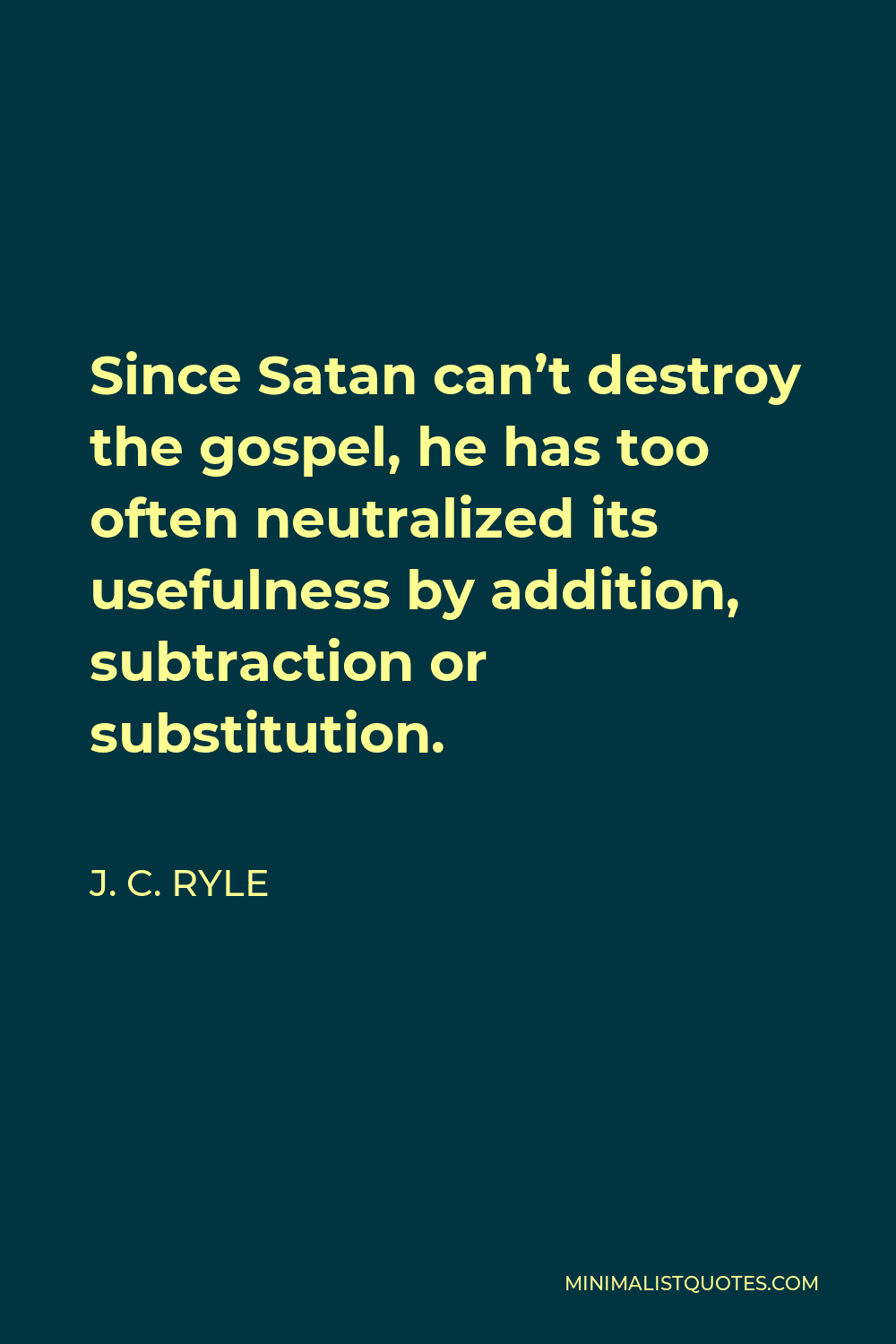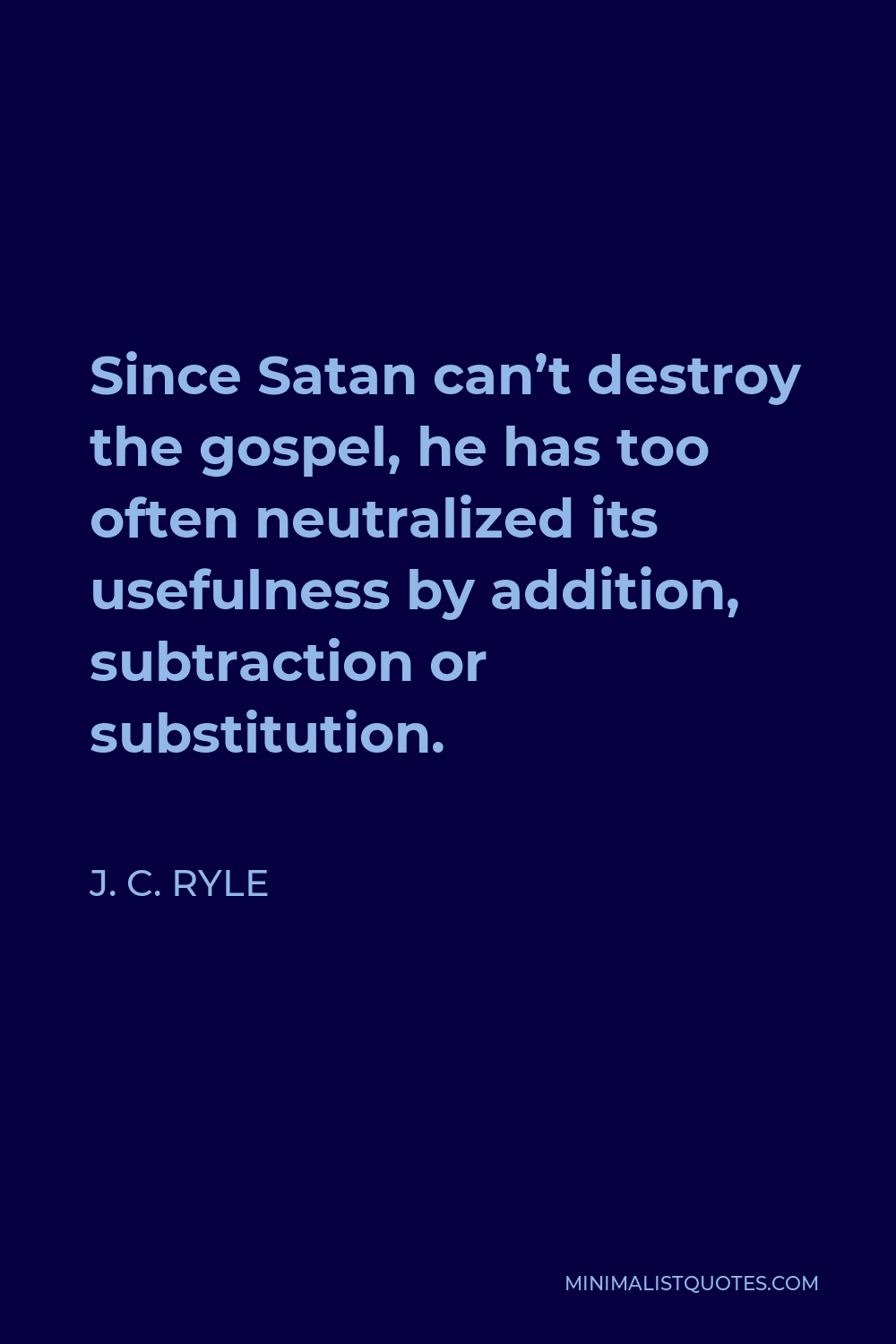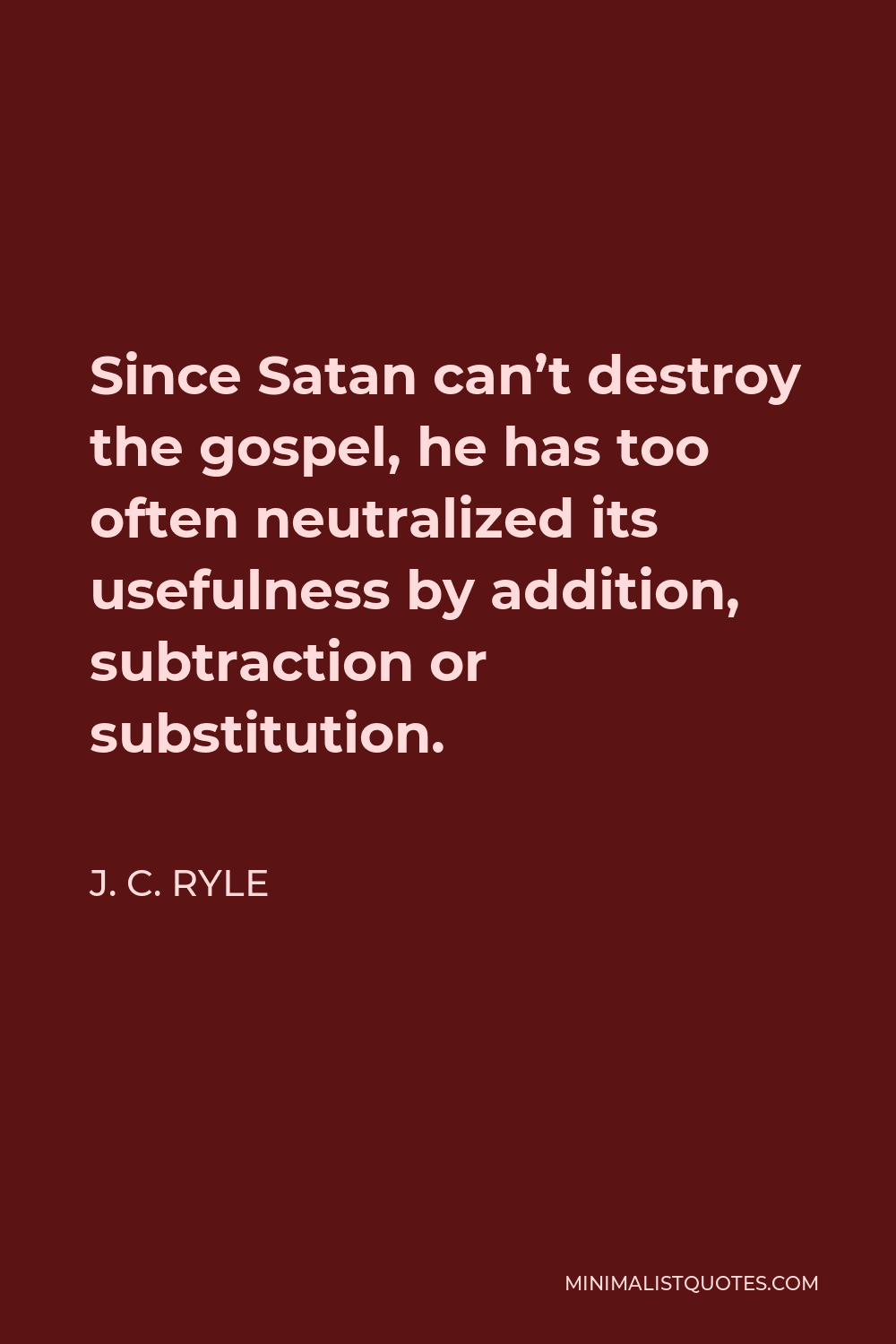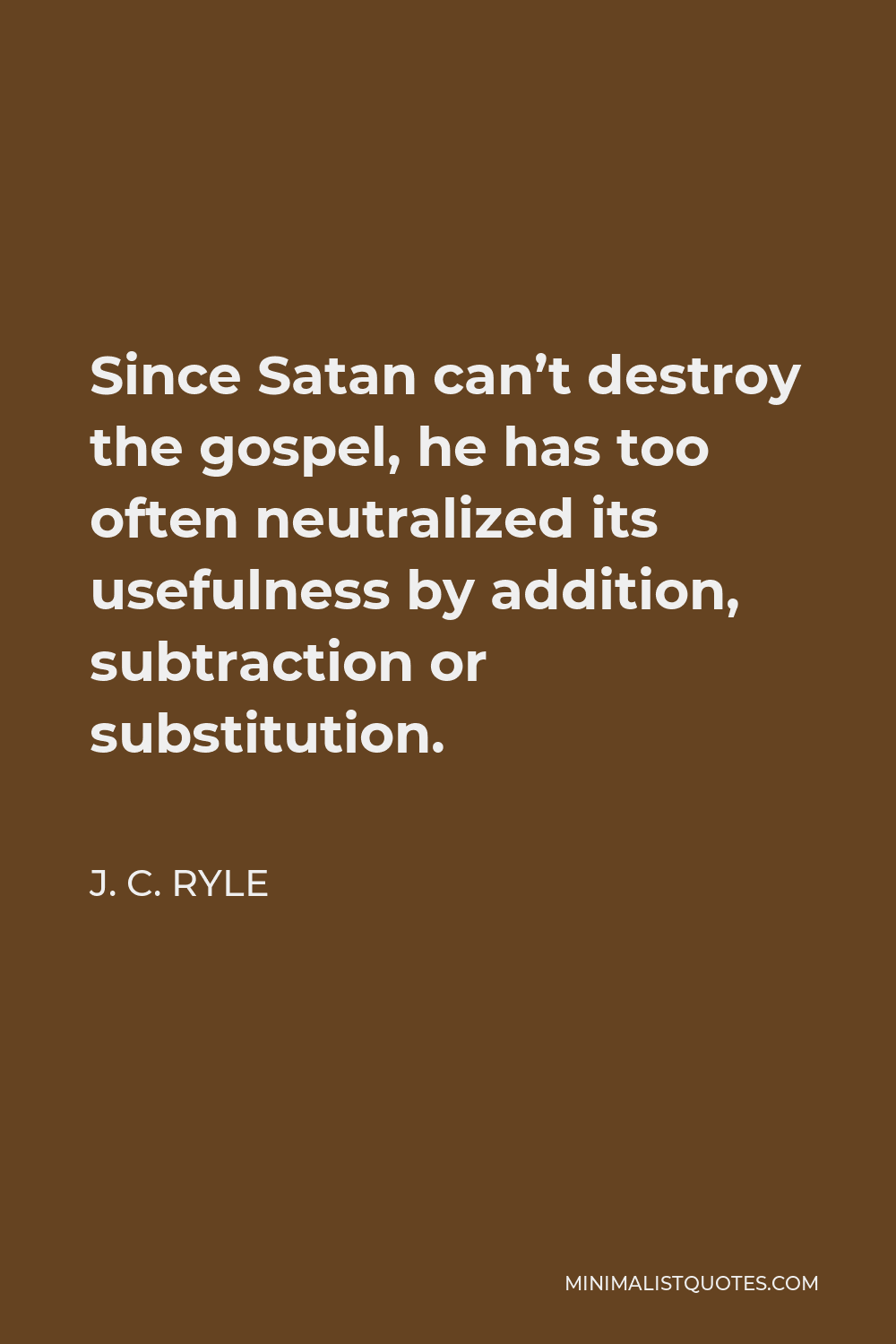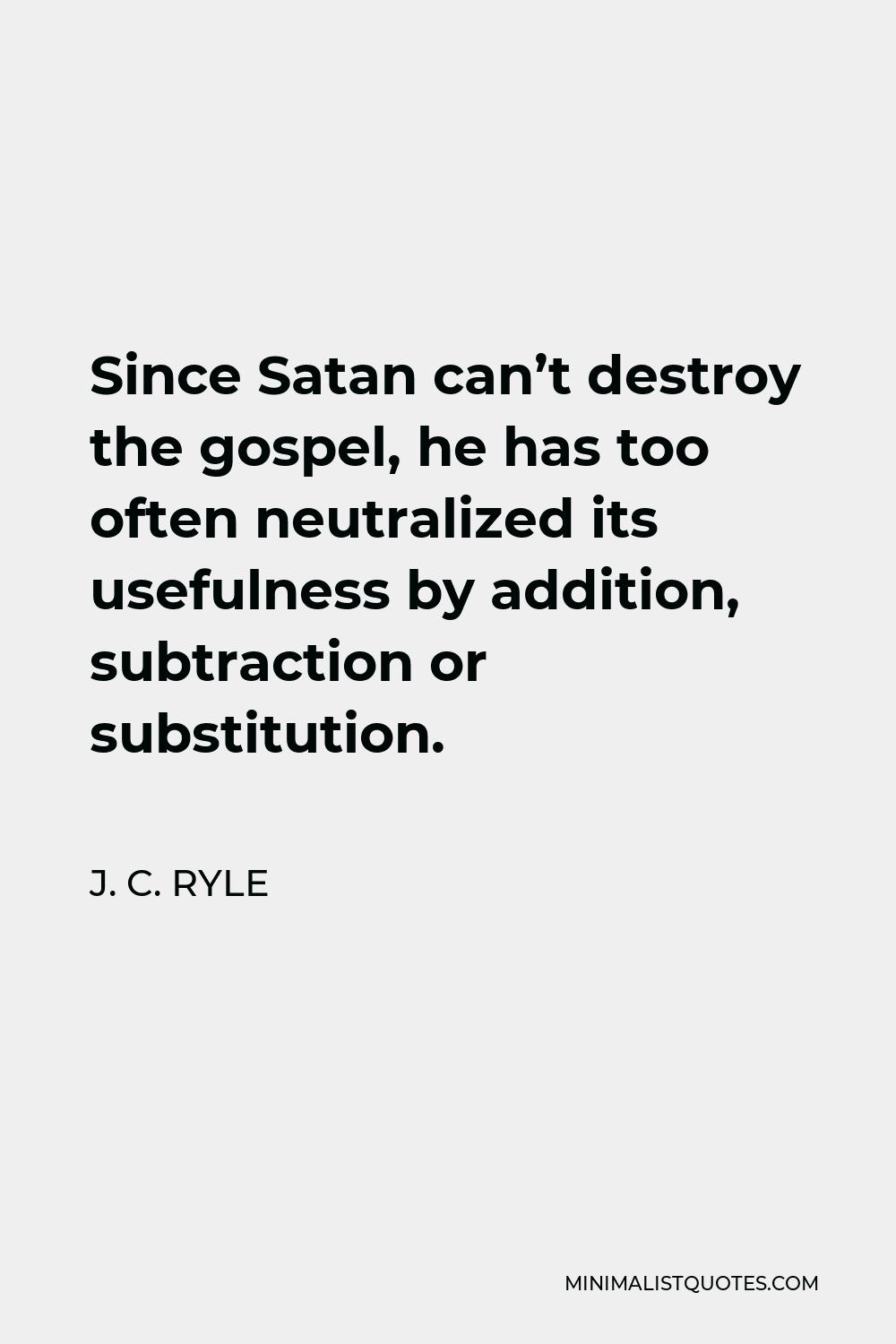Love should be the silver thread that runs through all your conduct.
J. C. RYLESince Satan can’t destroy the gospel, he has too often neutralized its usefulness by addition, subtraction or substitution.
More J. C. Ryle Quotes
-







-







Do not glory in your own faith, your own feelings, your own knowledge, or your own diligence. Glory in nothing but Christ.
J. C. RYLE -







Whatever you read, read the Bible first. Beware of bad books: there are plenty in this day. Take heed what you read.
J. C. RYLE -







The love of Christ towards His people is a deep well which has no bottom.
J. C. RYLE -





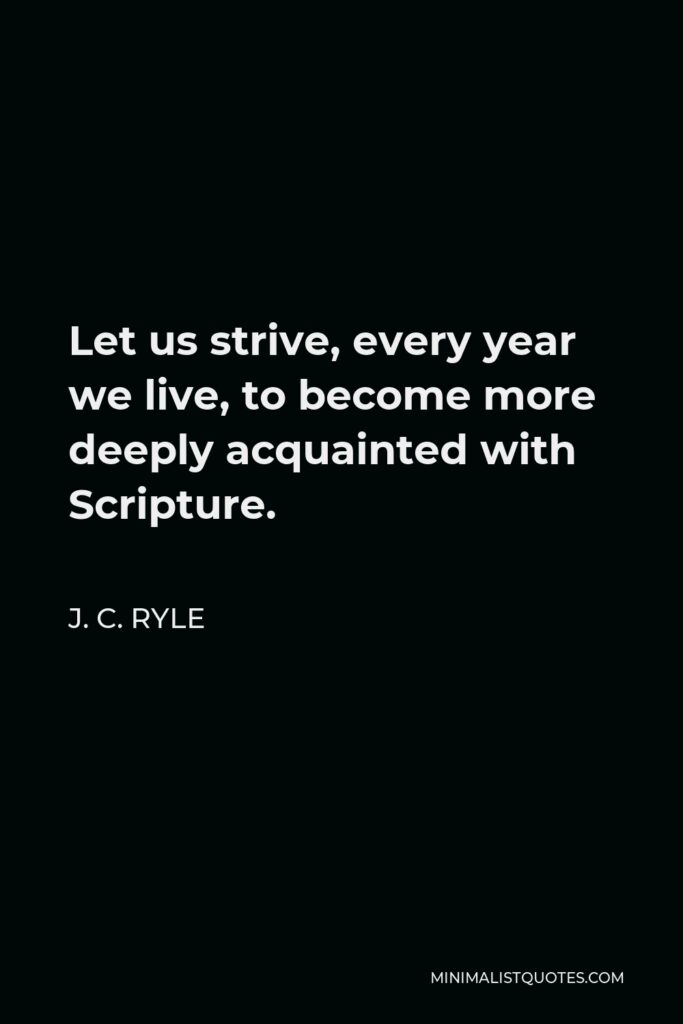

Let us strive, every year we live, to become more deeply acquainted with Scripture.
J. C. RYLE -





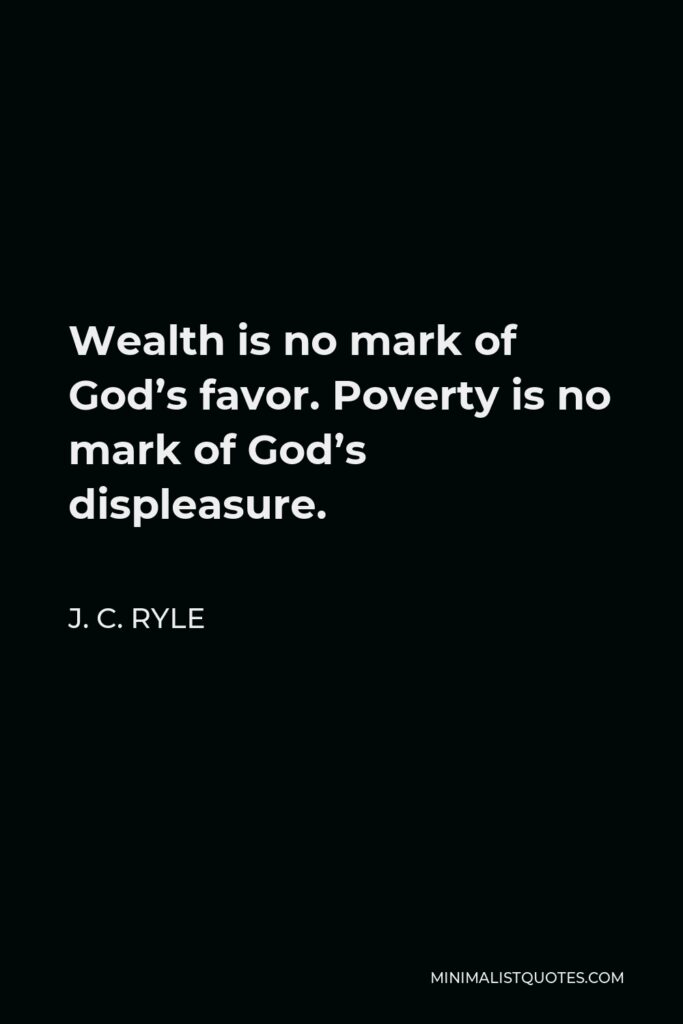

Wealth is no mark of God’s favor. Poverty is no mark of God’s displeasure.
J. C. RYLE -





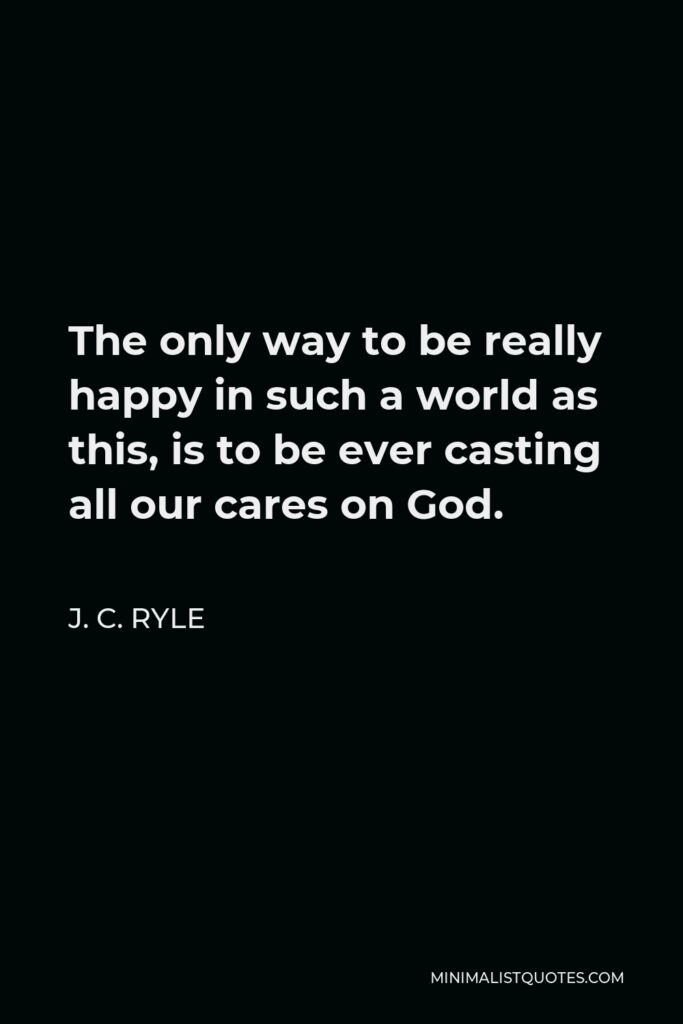

The only way to be really happy in such a world as this, is to be ever casting all our cares on God.
J. C. RYLE -







Let us cleave to Christ more closely, love Him more heartily, live to Him more thoroughly, copy Him more exactly, confess Him more boldly, and follow Him more fully.
J. C. RYLE -





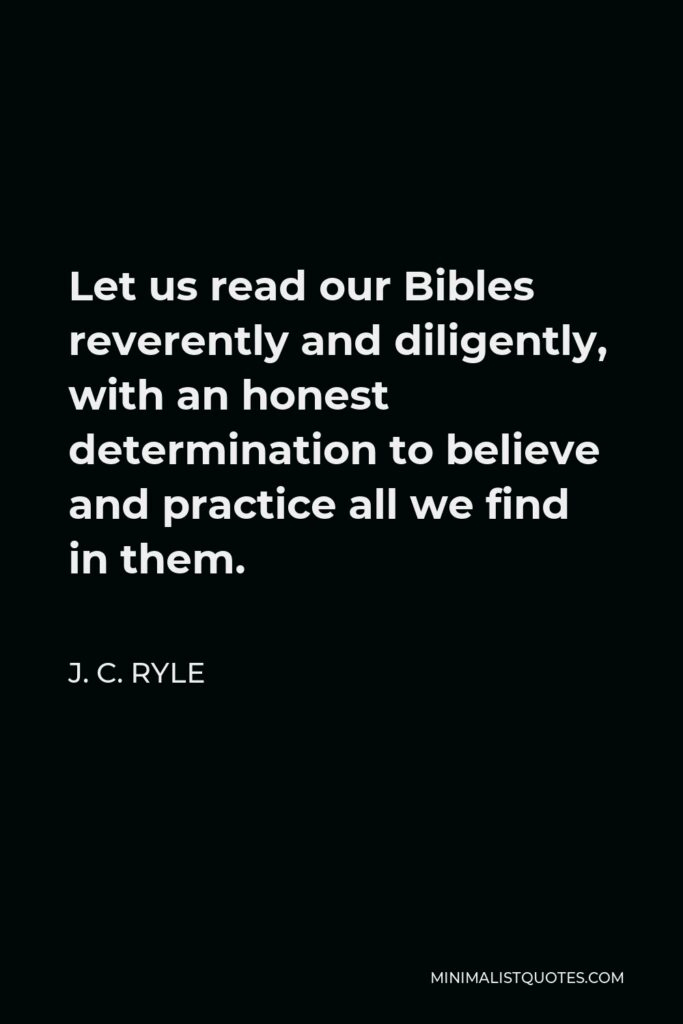

Let us read our Bibles reverently and diligently, with an honest determination to believe and practice all we find in them.
J. C. RYLE -







The nearer we live to God while we live, the more ready we will be to dwell forever in His presence when we die.
J. C. RYLE -







The blood of Christ can cleanse away all sin. But we must ‘plead guilty’ before God can declare us innocent.
J. C. RYLE -





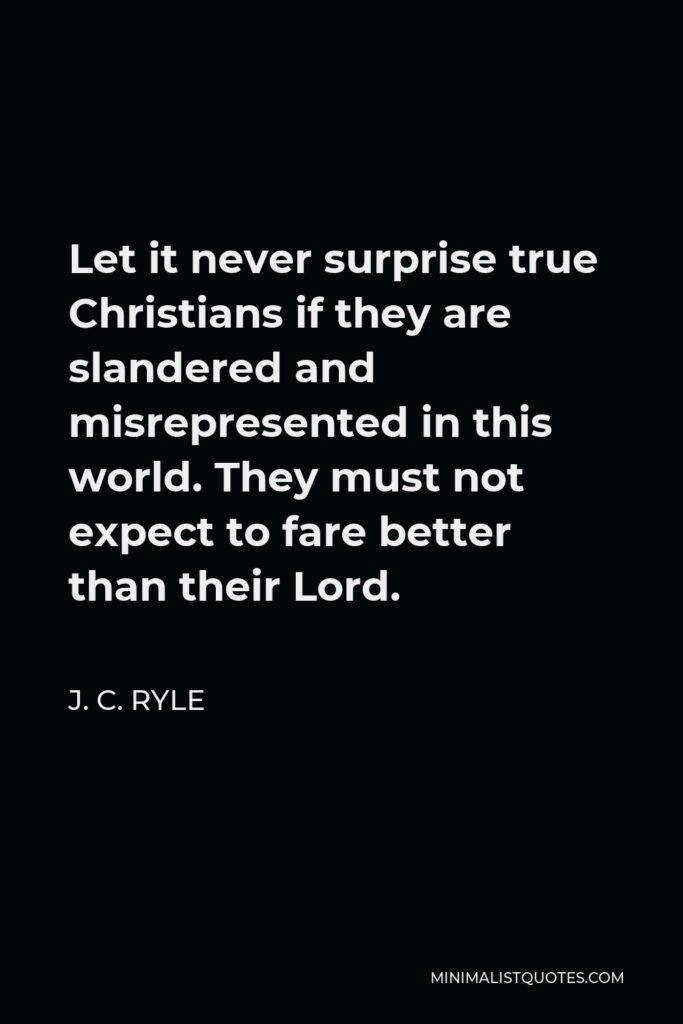

Let it never surprise true Christians if they are slandered and misrepresented in this world. They must not expect to fare better than their Lord.
J. C. RYLE -





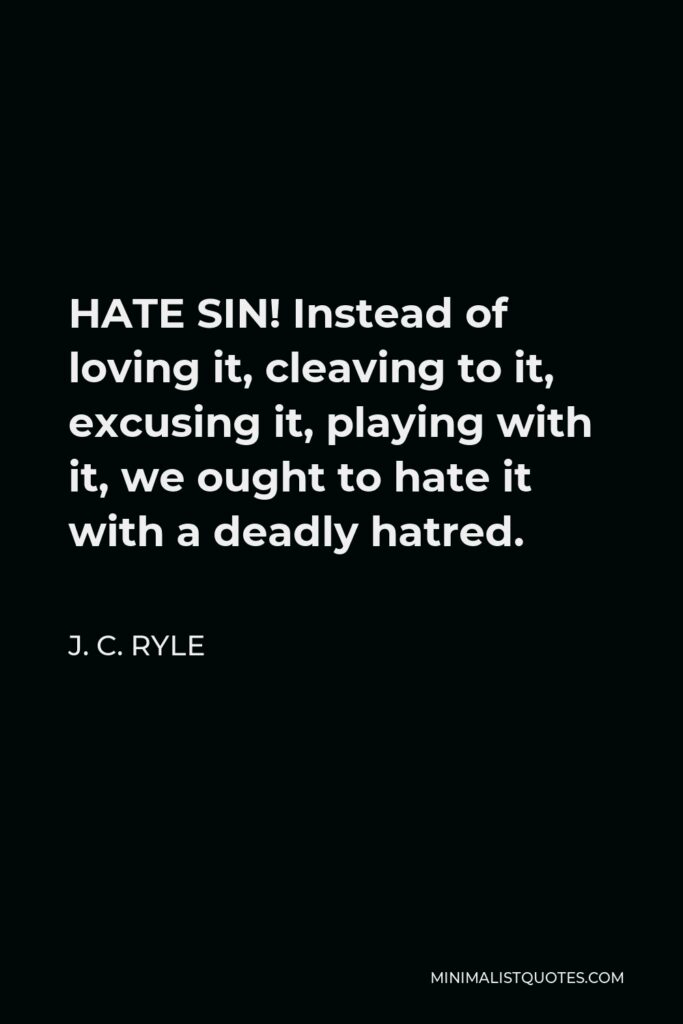

HATE SIN! Instead of loving it, cleaving to it, excusing it, playing with it, we ought to hate it with a deadly hatred.
J. C. RYLE -





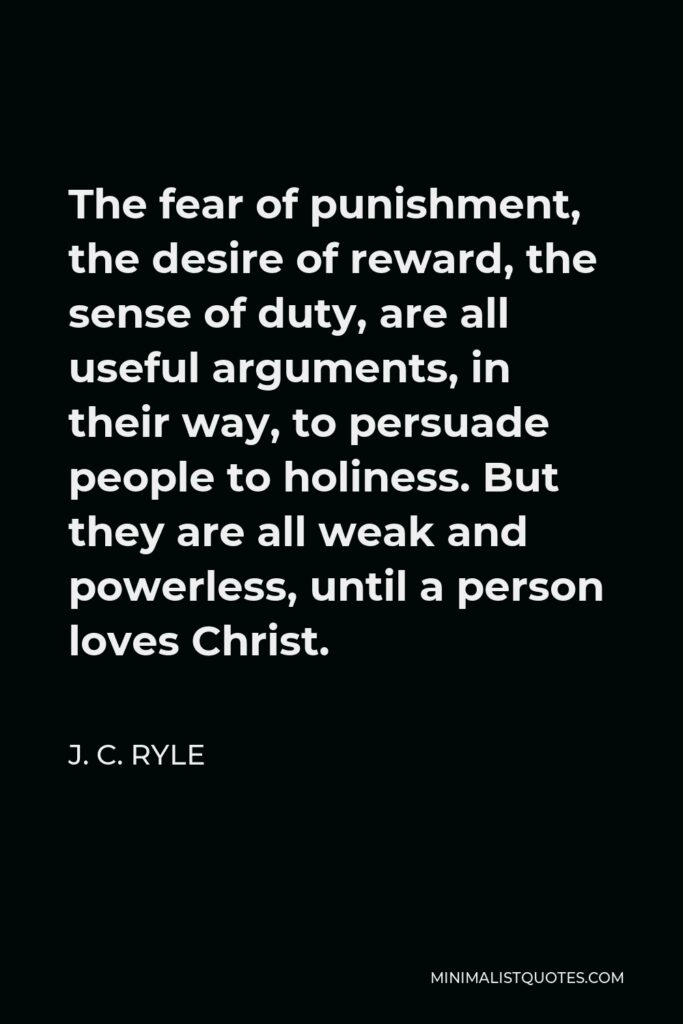

The fear of punishment, the desire of reward, the sense of duty, are all useful arguments, in their way, to persuade people to holiness. But they are all weak and powerless, until a person loves Christ.
J. C. RYLE -







The Lord Jesus is “a friend who never changes.” There is no fickleness about Him: those whom He loves, He loves to the end.
J. C. RYLE -







We must read our Bibles like men digging for hidden treasure.
J. C. RYLE
